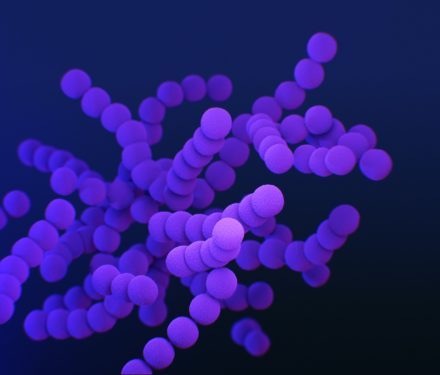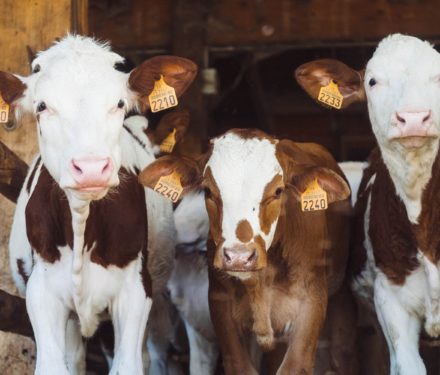Pharmaceutical Pollution in India and EU’s role
India is among the countries worst affected by antimicrobial resistance (AMR), with over 58,000 newborns estimated to die from drug-resistant infections annually. One, often overlooked cause of AMR is pollution from the pharmaceutical industry. Antibiotic residues from manufacturing plants enter the environment in the form of wastewater and have been found in lakes, streams and wells, leading to a high-level of resistant bacteria. Few EU pharmaceutical companies set discharge limits for external waste-treatment sites, and none disclose active pharmaceutical ingredient (API) levels in discharged wastewater. To this day, drug manufacturers continue to pump huge quantities of inadequately treated pharmaceutical waste into the environment (The Parliament Magazine, 2016). This blog will demonstrate how a lack of transparency and regulation in the EU damages vulnerable communities in India, for the sake of pharmaceutical industry profitability.
Impacts of pharmaceutical pollution on communities and environment in India
As India is a low-cost manufacturing destination for multinational drug companies, it acts as the major supplier to Europe and is home to many EU pharmaceutical factories. The EU is completely dependent on third countries to supply its own pharmaceutical market. In particular, 90 % of APIs for generic medicines are sourced from India (and China) (Parliament, 2020). By consequence, this dependence has accelerated pharmaceutical pollution in many Indian cities and towns, damaging the land, water, food, and health. Worse, pharmaceutical waste directly contributes to antibiotic contamination further increasing AMR (Nordea, 2016).
For instance, in the town of Bonthapalle, villagers avoid eating any food that was grown in their own area. They are concerned for all the health problems linked to such high pollution levels, notably miscarriages, cancers, and deaths of livestock. Due to highly contaminated water, wells are dug far from the town. Villagers who complain about the constant damage of pollution are threatened by local police, who are complicit with the factory owners (Nordea, 2016). Another city, Hyderabad, is known as “the city drowning in pharmaceutical pollution”. Villagers explain that if you drink the water, you feel nauseous and have immediate diarrhoea. There used to be fish in the lakes, however, wastewater from drug companies leaks into lakes and results in the death of hundreds of thousands of fish. Regarding agriculture, because the groundwater is completely polluted – farmers are dependent on rainwater. If there is no rain, then the harvest fails and the farmers suffer the consequences (Canadian Press, 2018).
The Musi River is a major waterway that flows through Hyderabad, whose smells are so bad that if you come close to it, your throat and eyes burn. A study by the Indian Institute of Technology found that antibiotic concentrations were 1000 times higher in the Musi river than rivers found in developed countries. Villagers argue that the manufacturing industry damages their land, water and food, but drug companies deny any involvement in causing pollution to the environment, claiming there is no evidence (Canadian Press, 2018).
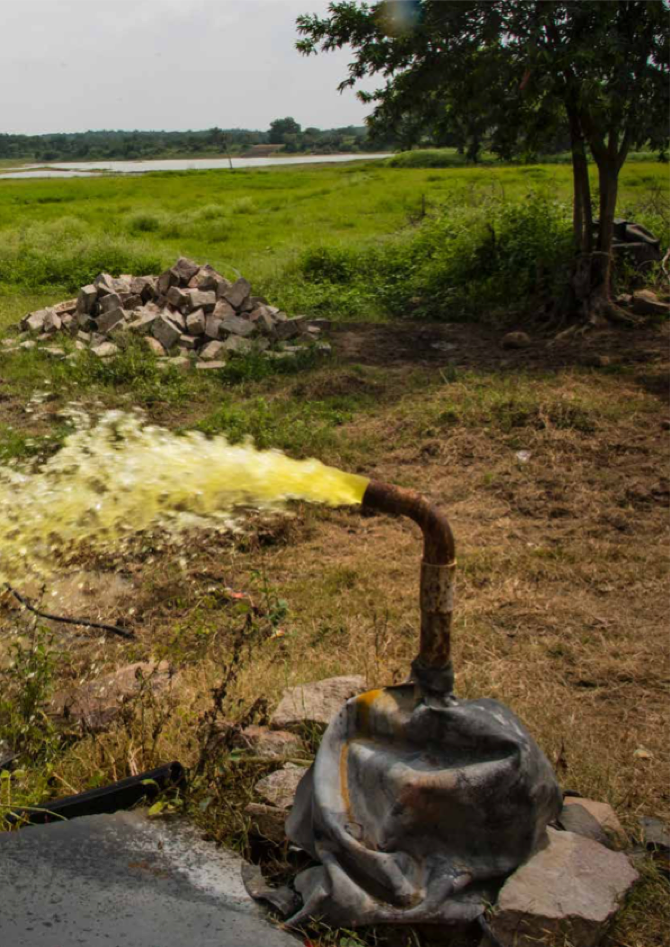
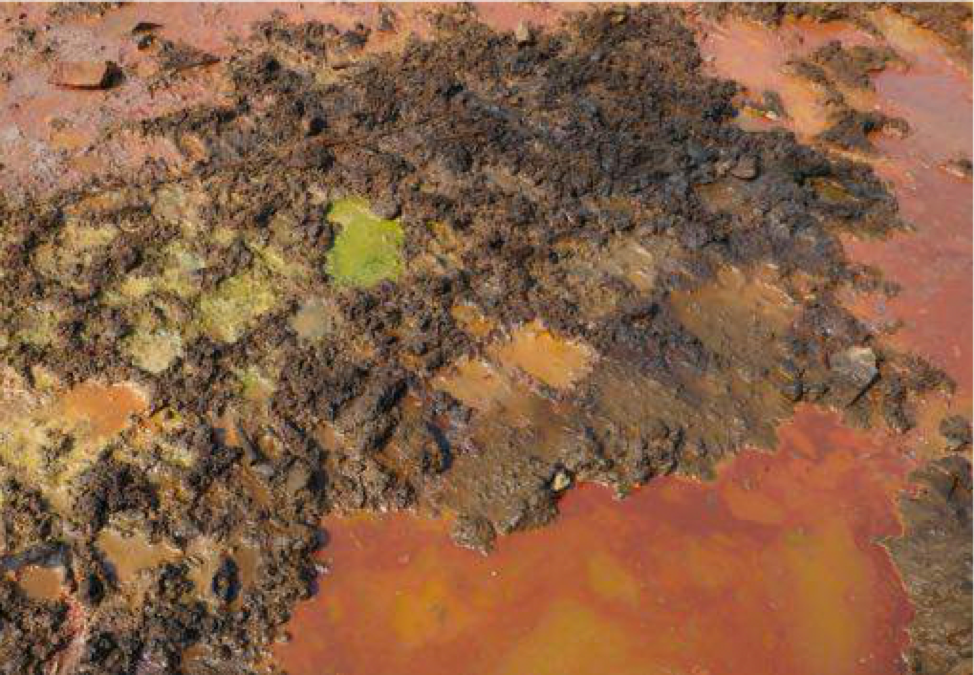
Why is this occurring?
EU regulations in the shape of the Good Manufacturing Practice framework (GMP) requires that medicinal products are of consistent high quality, are appropriate for their intended use, and meet the requirements of the market authorization or clinical trial authorization (EMA). These requirements focus on drug safety, but do not oblige companies to put in place environmental safeguards when producing their drugs, despite the alarming and well-known risks. The Commission has yet to respond to the calls from European NGOs and the OECD recommendation for environmental criteria to be included in the EU’s GMPs (Swedwatch, 2020). As of today, there are currently no GMP provisions regulating environmental emissions from the production of medicinal products.
Another issue is how monitoring of manufacturing plants takes place. Private laboratories in India are paid by the pharmaceutical industry to carry out Environmental Impact Assessments (EIA) of the pharmaceutical plants. These assessments provide certificates saying that plants are well within the standards despite potential issues. Because these labs are paid by the industry, they are incentivized to give positive reports or else, they will no longer be hired. Cases from villagers against the pharmaceutical industry have been in the courts since at least the 1980s. But, despite being paid by the pharmaceutical industry, EIAs are considered expert testimony in court whenever the waste management standards are called into question (Nordea, 2016).
EU Legislation on Pharmaceutical Pollution
Parliament’s call for action to tackle pharmaceutical pollution on September 10, 2020 declared that the Commission insufficiently acted and presented a serious delay in developing concrete actionable plans and targets from the 2019 Communication (Commission, 2019). The Commission’s strategic approach failed to demonstrate the concrete steps it would take to improve pharmaceutical production (Swedwatch, 2020). With a Motion for a Resolution, MEPs stressed for more careful use of medicines, the development of greener manufacturing and better waste management in the EU. MEPs approved this resolution with 671 votes to 15 and 10 abstentions calling for new measures to tackle pharmaceutical pollution, which causes long-term damage to ecosystems, reduces drug efficiency and increases resistance to antibiotics (Motion for a Resolution, 2020). Still, to this day, the Commission has yet to respond and no plan of effective measures has taken place.
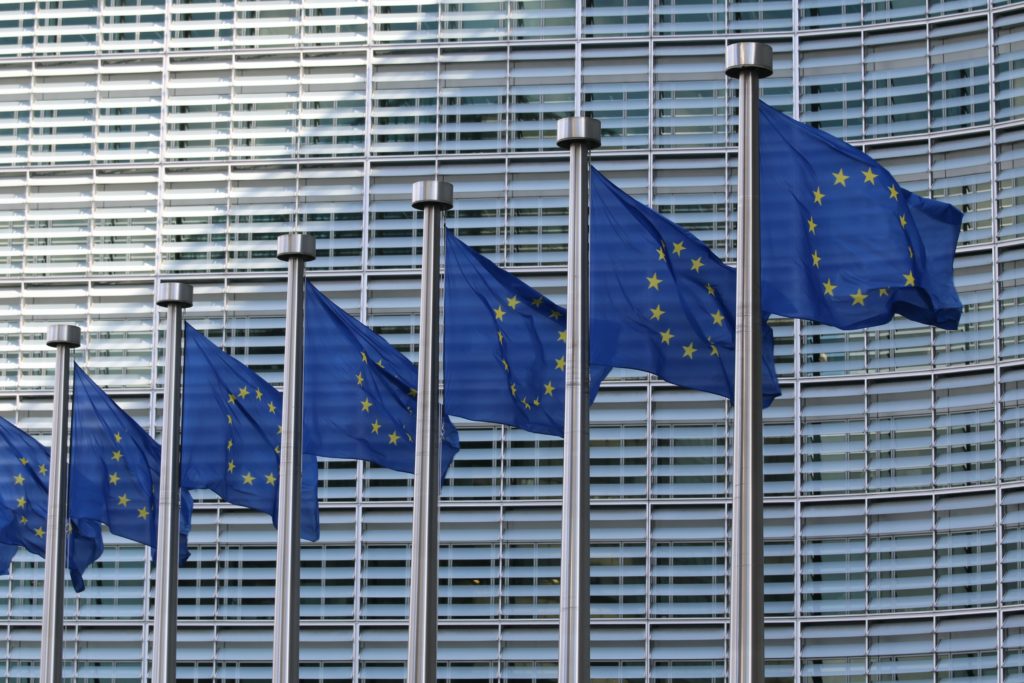
This has become a Human Rights issue:
According to The UN Guiding Principles (UNGP) on Business and Human Rights, “Business enterprises must respect human rights and have the responsibility to prevent and mitigate the adverse human rights impacts associated with their company’s activities”. The UNGPs require companies to verify their effectiveness in addressing the human rights issues associated with their business activities. They are obligated to have consultation with affected groups, and businesses must externally communicate how they address human rights abuses (UN Human Rights Council).
A recent NGO investigation’s research and interviews in India revealed that “widespread environmental pollution from pharmaceutical manufacturers violates local community members’ right to a healthy environment, including their access to clean water, air and soil. It further threatens their fundamental right to life through long-term exposure to pharmaceutical residues and other hazardous materials that are released into the environment” (Swedwatch, 2020). Furthermore, the extreme concentrations of antibiotics and the presence of multi-resistant bacteria found in rivers and lakes are further increasing the devastating impact of AMR.
Conclusion
In addition to the 58,000 babies dying of AMR annually, India faces almost 57,000 deaths due to sepsis caused by drug-resistant bacteria. While India’s 2017 national action plan on AMR includes intentions to monitor and regulate industrial discharges of antibiotic residues, this may be hindered if the EU does not increase transparency and accountability and reduces pharmaceutical pollution (The Parliament Magazine, 2016).
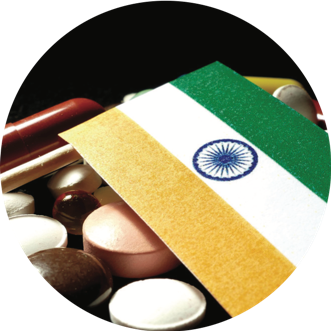


 Report
Report